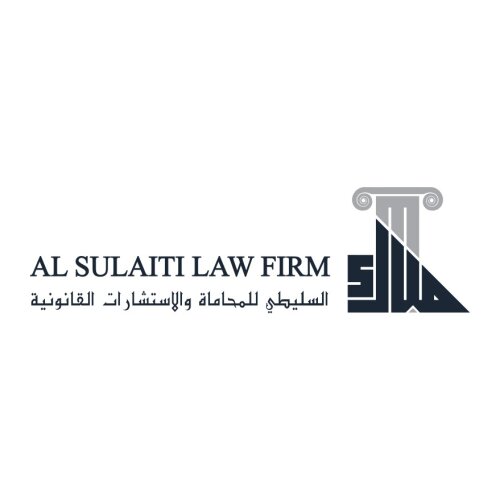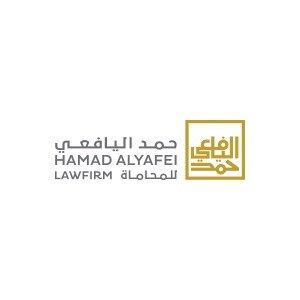Best Renewable & Alternative Energy Lawyers in Doha
Share your needs with us, get contacted by law firms.
Free. Takes 2 min.
List of the best lawyers in Doha, Qatar
About Renewable & Alternative Energy Law in Doha, Qatar
Qatar, known for its abundant oil and natural gas resources, is making strategic moves toward sustainable development and environmental responsibility. As the country diversifies its economy and responds to global calls for lower carbon emissions, renewable and alternative energy sources such as solar, wind, and waste-to-energy are gaining traction in Doha and throughout Qatar. Renewable and alternative energy law refers to the legal framework governing the generation, distribution, investment, and use of energy from sources that are replenished naturally or are an alternative to traditional fossil fuels. In Doha, these laws support national goals for sustainability, foreign direct investment, and innovation, aligning with the Qatar National Vision 2030 and related environmental objectives.
Why You May Need a Lawyer
The renewable and alternative energy sector in Doha is growing rapidly, but navigating its regulatory environment can be complex. Individuals and businesses often require legal assistance in situations such as:
- Drafting, negotiating, or reviewing contracts for solar power purchase, wind energy projects, or waste-to-energy facilities.
- Obtaining government permits, licenses, or approvals needed to establish energy projects.
- Ensuring compliance with environmental protection rules and safety regulations.
- Managing disputes related to equipment, land use, technology supply, or partnership agreements.
- Securing intellectual property rights for new green technologies or renewable energy solutions.
- Advising on incentives, subsidies, or tax breaks for renewable energy investment.
- Structuring joint ventures or partnerships between Qatari and foreign entities in the energy sector.
A specialized lawyer can clarify these legal aspects, secure your rights, and help ensure successful project outcomes while minimizing legal risks.
Local Laws Overview
Qatar’s approach to renewable and alternative energy is regulated by a combination of national legislation, environmental policies, and international frameworks to which Qatar is a party. Some key aspects relevant to Doha include:
- The Ministry of Energy and Industry and Kahramaa (Qatar General Electricity and Water Corporation) are primary regulatory authorities for energy matters.
- Licensing is required for the construction and operation of renewable energy facilities. This involves several government agencies and careful compliance with local requirements.
- Environmental regulations mandate impact assessments for large-scale energy projects to minimize adverse ecological effects.
- The government offers incentives such as subsidies and tax concessions to encourage investment in renewable technologies.
- Urban planning rules play a role in where and how renewable installations can be built, affecting land procurement and usage.
- The Qatar National Vision 2030 and its implementation strategies aim to increase the renewable energy share in the national energy mix.
- Intellectual property and technology transfer laws protect investments and innovations in alternative energy sectors.
Given the evolving landscape, staying informed about the latest laws and regulatory changes is crucial for anyone interested in renewable and alternative energy projects in Doha.
Frequently Asked Questions
What types of renewable energy projects are most common in Doha?
Solar energy projects are currently most common in Doha, followed by waste-to-energy initiatives. There are also increasing pilot projects in wind and other renewable sectors.
What government approvals are required for a renewable energy project?
Approvals are generally required from Kahramaa, the Ministry of Energy and Industry, the Ministry of Municipality and Environment, and sometimes local municipal authorities, depending on the project scale.
Are there incentives for foreign companies to invest in renewable energy in Qatar?
Yes, Qatar offers incentives such as tax breaks, customs exemptions, and streamlined licensing to attract foreign direct investment in renewable and alternative energy projects.
Is it possible for individuals or businesses to sell surplus renewable energy back to the grid?
Laws and regulations regarding feed-in tariffs or net metering are developing. It is important to confirm current policies with Kahramaa or through legal counsel, as this is an evolving area.
What are the main challenges in setting up a renewable energy business in Doha?
Key challenges include regulatory compliance, navigating multiple agency approvals, securing suitable land, and staying informed about evolving rules and incentives.
Do renewable energy projects require environmental impact assessments?
Yes, large-scale renewable energy projects typically require environmental impact assessments to ensure they meet national environmental protection standards.
How are disputes in renewable energy contracts resolved?
Most disputes are resolved through negotiation or, if necessary, arbitration or litigation, as stipulated in the contract. Qatar supports alternative dispute resolution mechanisms.
Can intellectual property associated with renewable technologies be protected in Qatar?
Yes, Qatar has laws that protect intellectual property rights for inventions, designs, and technologies, including those related to renewable energy.
Are there any restrictions on foreign ownership in the renewable energy sector?
Qatar allows up to 100 percent foreign ownership in certain sectors, including renewable energy, subject to approval from the Qatar Financial Centre or Ministry of Commerce and Industry.
Where can I find up-to-date regulatory information on renewable energy in Doha?
The Kahramaa website and the Ministry of Energy and Industry are good starting points for regulatory updates. Consulting with a specialized attorney is also recommended for the latest information.
Additional Resources
If you are seeking legal advice or information about renewable and alternative energy in Doha, the following organizations may be able to help:
- Ministry of Energy and Energy Affairs: Oversees energy policy, including renewables.
- Kahramaa (Qatar General Electricity and Water Corporation): Regulates electricity generation, distribution, and renewable projects.
- Ministry of Municipality and Environment: Handles environmental permits and compliance.
- Qatar Science and Technology Park: Supports innovation and collaboration in renewable energy technologies.
- Qatar Financial Centre: Provides information on foreign investment regulations and incentives.
- Qatar Chamber of Commerce and Industry: Offers guidance for businesses engaging in the renewable sector.
Next Steps
If you or your business are considering entering the renewable and alternative energy field in Doha, Qatar, or have encountered a legal issue, the following steps are recommended:
- Clearly define your objectives and gather relevant documents related to your project or inquiry.
- Research local laws and identify which regulations and approvals may apply to your specific case.
- Consult a lawyer specializing in renewable and alternative energy law in Qatar to get tailored advice and ensure compliance with local requirements.
- Seek guidance from relevant governmental bodies or sector organizations for additional resources and support.
- Proceed with legal documentation, applications, or dispute resolution processes as advised by your attorney.
Taking early action and relying on specialist legal advice will help ensure that your rights and interests are protected as you navigate Qatar's dynamic renewable and alternative energy landscape.
Lawzana helps you find the best lawyers and law firms in Doha through a curated and pre-screened list of qualified legal professionals. Our platform offers rankings and detailed profiles of attorneys and law firms, allowing you to compare based on practice areas, including Renewable & Alternative Energy, experience, and client feedback.
Each profile includes a description of the firm's areas of practice, client reviews, team members and partners, year of establishment, spoken languages, office locations, contact information, social media presence, and any published articles or resources. Most firms on our platform speak English and are experienced in both local and international legal matters.
Get a quote from top-rated law firms in Doha, Qatar — quickly, securely, and without unnecessary hassle.
Disclaimer:
The information provided on this page is for general informational purposes only and does not constitute legal advice. While we strive to ensure the accuracy and relevance of the content, legal information may change over time, and interpretations of the law can vary. You should always consult with a qualified legal professional for advice specific to your situation.
We disclaim all liability for actions taken or not taken based on the content of this page. If you believe any information is incorrect or outdated, please contact us, and we will review and update it where appropriate.
















